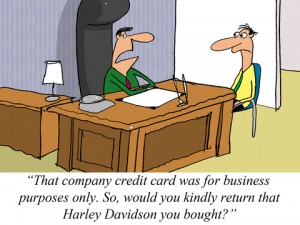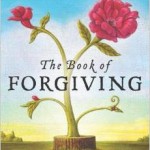Break in trust = Negative outcome.
Questions:
- Have you ever had a boss or an employee break your trust?
- Have you ever lost confidence in the sincerity of a colleague?
What is the fallout of broken trust?
- Productivity and employee engagement may be compromised.
- Tension can be prevalent throughout company culture.
 Employees could lose confidence in the strategic direction of their company.
Employees could lose confidence in the strategic direction of their company.- People might be fearful of taking risks, which ultimately hinders innovation.
- Feelings of sadness, depression, anger and/or frustration.
- High turn-over.
- Company failure is a possibility.
I must admit, I don’t believe that there is a “quick fix”, but I know there is HOPE in addressing the negative feelings associated with broken trust. Hang in there with me, and I will let you in on my inspiration!
Let’s face it. We are not perfect creatures!
We make mistakes as employers, leaders, employees, and colleagues. We all make mistakes. If we didn’t – we wouldn’t be looking for ways to IMPROVE ourselves. We wouldn’t be looking for ways to REINVENT the workplace. Unfortunately, some mistakes create cracks in our foundations of trust. And, for some – trust can be lost altogether.
What is trust and how can it be broken?
The definition of Organizational Trust (from the “Blueprint for Workplace Reinvention“) is:
An environment where, employees at all levels are trusted to speak and act for the good of the organization, and they behave in a  trustworthy fashion. Employees trust that they can respectfully challenge ideas and practices for the overall good without penalty. Sincerity and integrity are demonstrated daily in actions and conduct.
trustworthy fashion. Employees trust that they can respectfully challenge ideas and practices for the overall good without penalty. Sincerity and integrity are demonstrated daily in actions and conduct.
Trust can be fragmented or broken in countless ways:
- Employees not kept up-to-date with company goals and objectives.
- Company lay-offs.
- A leader may repeatedly come to meetings unprepared.
- A manager may never look his/her subordinate in the eye.
- An employee may hide an error that occurred.
- A colleague may undermine a team member’s credibility.
How to heal broken trust – with FORGIVENESS

The Book of Forgiving Written by Desmond Tutu and Mpho Tutu
I know that there may be some that think forgiveness is impossible for their situation. But I found some words of wisdom that I would like to share with you. I’ve been reading, “The Book of Forgiving” by Desmond Tutu and Mpho Tutu. If Desmond Tutu can find forgiveness, I think that it is possible that we can apply his words of wisdom to workplace challenges. It is well documented that Desmond Tutu had a great deal of pain, conflict, and tragedy, plague much of his life. And, yet he forgave those who mistreated him. He has often said that “In South Africa, there would have been no future without forgiveness. Our range and our quest for revenge would have been our destruction”.
The four-step process of forgiveness – from “The Book of Forgiving”
(Note that there is no timeline for the process)
- Telling the Story
- Naming the Hurt
- Granting Forgiveness
- Renewing or Releasing the Relationship
Applying the “Four Step Process” of FORGIVENESS to the workplace
Telling the Story
- Talk to your boss/colleague/employee how your trust was broken.
- This discussion must be done carefully, and without attack.
- To help keep communication open (and avoid quick defensiveness), start by telling the person how they have helped you, and what they mean to you. There is always SOMETHING positive that can be said.
- There isn’t a guarantee that the person will acknowledge what error occurred. But your forgiveness doesn’t rely on an apology – even though it certainly would make it easier.
- If telling someone directly isn’t possible, a letter (even without giving to the person who broke your trust), is still very cathartic.
- And if it is YOU who broke trust with someone, check out www.perfectapology.com. It has tips and tools in how to apologize, and it also gives people the opportunity to post their own story of what they are remorseful for.
Naming the Hurt
- When trust is broken it is important to remember that everyone will experience the emotion in their own way.
- There isn’t a wrong way to feel – because they are YOUR feelings.
- It is important to talk out those emotions in a constructive way.
- Talk to friends and family that are outside of the workplace.
- Talk to your Human Resources department if the situation is applicable.
Granting Forgiveness What have you lost by not being able to forgive? We choose forgiveness because, “it is how we find freedom and keep from remaining trapped in an endless loop of telling our stories and naming our hurts…and, we are ALL more than the worst thing we have done in our lives” (The Book of Forgiving). Renewing or Releasing the Relationship
- Do you stay or leave the department, the company?
- Do you let an employee go?
- Do you accept the human flaws of the person that you work with, embrace their positive qualities, and move on?
Forgiveness: What it is and what it isn’t – from “The Book of Forgiving“
- To forgive is not to forget.
- We don’t forgive for others, we forgive for ourselves.
- Peace always comes to those who forgive, and it is how we become whole again
- Although it is easier to forgive if the perpetrator expresses remorse, forgiveness is not dependent on the actions of others.
- Without forgiveness, we remain tethered to the person who broke our trust.
- There is nothing that can’t be forgiven, and there is no one undeserving of forgiveness.
Final Thoughts:
The choice is yours in how YOU live with broken trust. MY choice is forgiveness. We are all human. And as humans, we ALL can be thoughtless, mean, cruel AS WELL AS thoughtful, kind, and generous. If we really understand that, perhaps we can empathize with the person who broke our trust and/or mistreated us.
- Maybe the person is dealing with large issues in their personal life.
- Maybe the person had a challenging past or upbringing.
- Maybe the person is dealing with their OWN feelings of broken trust.
I think if we take this all into consideration, forgiveness IS possible.

